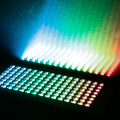Yocto-Visualization and Windows XP
 As some of you have already noticed it, version 2 of our Yocto-Visualization application doesn't run under Windows XP. Actually, it uses the .NET 4.5 framework which you can't install on Windows XP. This week, we show you how to work around this issue.
As some of you have already noticed it, version 2 of our Yocto-Visualization application doesn't run under Windows XP. Actually, it uses the .NET 4.5 framework which you can't install on Windows XP. This week, we show you how to work around this issue.
| No comment yet | Read more... |
The basics of the Yocto-Color-V2
 We recently noticed that our libraries didn't include an example using the Yocto-Color-V2. On top of adding this missing example in all of our libraries, we decided to write a post illustrating the new function which was added to the Yocto-Color-V2.
We recently noticed that our libraries didn't include an example using the Yocto-Color-V2. On top of adding this missing example in all of our libraries, we decided to write a post illustrating the new function which was added to the Yocto-Color-V2.
| One comment | Read more... |
Optimizing communications with Yoctopuce devices
![]() Experienced users of Yoctopuce modules will sooner or later wonder how much data needs to be transferred to retrieve the measures from Yoctopuce sensors. It can be the case to optimize GSM consumption, as it we discussed in a previous post, but also simply to improve the performances of an application where the modules are connected by USB but where the measures must be read very quickly. So here is a detailed explanation to know everything and optimize everything...
Experienced users of Yoctopuce modules will sooner or later wonder how much data needs to be transferred to retrieve the measures from Yoctopuce sensors. It can be the case to optimize GSM consumption, as it we discussed in a previous post, but also simply to improve the performances of an application where the modules are connected by USB but where the measures must be read very quickly. So here is a detailed explanation to know everything and optimize everything...
| No comment yet | Read more... |
Using Yocto-Visualization with a YoctoHub-GSM
![]() Yocto-Visualization enables you to very easily visualize data from Yoctopuce sensors, whether they are connected by USB or through a network hub, with the exception of the YoctoHub-GSM. Indeed, the GSM SIM cards available to ordinary people do not have a public IP address and are behind a NAT filter, which prevents the Yocto-Visualization to connect itself directly on it. However, there is a way to work around this issue.
Yocto-Visualization enables you to very easily visualize data from Yoctopuce sensors, whether they are connected by USB or through a network hub, with the exception of the YoctoHub-GSM. Indeed, the GSM SIM cards available to ordinary people do not have a public IP address and are behind a NAT filter, which prevents the Yocto-Visualization to connect itself directly on it. However, there is a way to work around this issue.
| No comment yet | Read more... |
Installing Yocto-Visualization under Linux
 A few weeks ago, we announced the Linux version of Yocto-Visualization V2, and in that post we explained how to install and run the application. But we realized that our installation process was tedious. Therefore, we revised our process and we now offer you an easier solution.
A few weeks ago, we announced the Linux version of Yocto-Visualization V2, and in that post we explained how to install and run the application. But we realized that our installation process was tedious. Therefore, we revised our process and we now offer you an easier solution.
| No comment yet | Read more... |
1 ... 10 ... 20 ... 30 ... 40 ... 50 ... 60 ... 70 ... 73 74 75 76 77 78 79 80 81 82 83 ... 90 ... 100 ... 110 ... 120 ... 130 ... 140 ... 150 151


